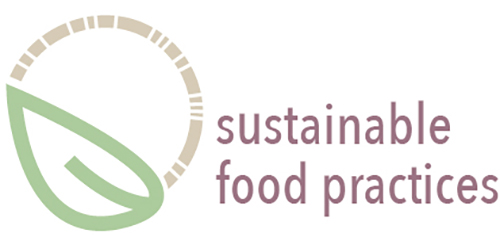
“Analysis of the sustainability transition in Luxembourg’s foodscape. How the creation of infographics allows for the depiction of systemic complexity”
11th May 2021
The Sustainable Food Practices team gave a lecture as part of the Science and citizens meet challenges of sustainability (SCCS) course at the University of Luxembourg. The topics is ‘Analysis of the sustainability transition in Luxembourg’s foodscape. How the creation of infographics allows for the depiction of systemic complexity’.
Abstract
Local or regional food systems are complex networks of food production, distribution, and consumption, embedded in interwoven relations between levels, spheres, sectors and actors, as well as the resulting interdependencies of the global food system (Gliessman 2015) – often referred to as “foodscapes” (Mikkelsen 2011).
Describing a foodscape whose actors and actions form a non-unified whole is problematic, but a visual depiction may unravel its complexity. However, while many approaches address food from a systemic point of view, they rarely qualify or empirically document the entire food system. The challenge of creating such an empirically qualified documentation lies in how to map actors and their multiple activities, while taking into account their relationships.
This lecture shows how the food system can be envisioned as a dynamic multi-scalar and multi-sited foodscape by drawing from visual tools like infographics to depict complex systems. We show how infographics can contribute to increase and improve the capacity to grasp and work with complexity that evolves from the food system. During the lecture, we present the methodology and the theory allowing us to analyse the current state of the system and display it in infographics. Through empirical research, we mapped all the broad actor groups and documented specific examples of their activities, showing the diversity of the actor groups within Luxembourg’s food system. We will share and discuss two concrete infographics developed during 2020 and 2021 by our team. The first depicts all the main actor groups of the food system, whereas the second refines the main groups into and feeds each group with examples from the Luxembourgish foodscape. An analytical version of these infographics representing relations between actors, drivers, gaps, lock-ins, leverage-effects, as well as externalities of the food system, is in the making and will be briefly addressed and put up for a discussion asking how such an approach allows for understanding the opportunities and challenges of processes of a sustainable food transition.
Rachel Reckinger, Diane Kapgen, Helena Korjonen
References
Gliessman, Stephen R. 2014. Agroecology: The Ecology of Sustainable Food Systems. 3rd ed. Boca Raton: CRC Press.
IPES Food. 2020. “COVID-19 and the Crisis in Food Systems: Symptoms, Causes, and Potential Solutions.” (April):1–11.
Mikkelsen, Bent Egberg. 2011. “Images of Foodscapes: Introduction to Foodscape Studies and Their Application in the Study of Healthy Eating out-of-Home Environments.” Perspectives in Public Health 131(5):209–16.
Reckinger, Rachel, Diane Kapgen, and Maria Helena Korjonen. 2020. “An Infographic Synopsis of Luxembourg’s Food System.” Forum Für Politik, Gesellschaft Und Kultur in Luxemburg 408:39–42.
Reckinger, Rachel. 2020. “Reprise de Conscience de La Saisonnalité via La Régionalité.” Pp. 247–65 in L’alimentation au fil des saisons: La saisonalité des pratiques alimentaires, edited by C. Adamiec, M.-P. Julien, and F. Régnier. Tours: Presses Universitaires François Rabelais.
Reckinger, Rachel. 2020. “The Resourcefulness of Luxembourg’s Food System as Put to the Test by the Coronavirus Lock-Down.” in The Ends of Humanities – Volume 2: Self and Society in the Corona Crisis. Perspectives from the Humanities and Social Sciences, edited by G. Mein and J. Pause. Melusina Press.

